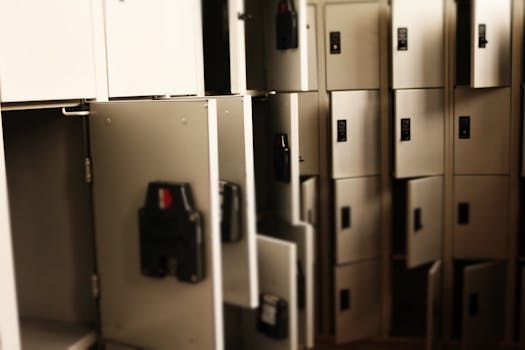Secure Data Storage in Smart Appliances: Ensuring User Privacy
Smart appliances have undoubtedly made our lives more convenient. From controlling our lights and thermostats with a simple voice command to refrigerators that can create grocery lists and order food, these appliances have streamlined many of our daily tasks. However, with these conveniences comes the need for secure data storage. As more and more personal information is being collected and transmitted through these appliances, it’s essential to ensure that user privacy is protected. In this article, we will explore the importance of secure data storage in smart appliances and how it can be achieved to safeguard user privacy.
The Risks of Insecure Data Storage in Smart Appliances
Smart appliances collect and store sensitive user data, including personal information, usage patterns, and even audio and video recordings. This data is transmitted to the manufacturer’s servers for processing and analysis, making it vulnerable to cyber threats.
One of the biggest risks of insecure data storage is the possibility of a data breach. In recent years, we have seen a rise in hacking attempts and successful attacks on various smart devices, including appliances. These breaches can result in the exposure of personal information, which can then be used for identity theft, fraud, and other malicious activities.
In addition to data breaches, insecure data storage can also lead to unauthorized access or use of personal information by the manufacturer or third-party companies. This not only violates user privacy but can also result in targeted advertising and unwanted marketing emails.
Furthermore, with the rise of Internet of Things (IoT) devices, it’s becoming easier for cybercriminals to gain access to smart appliances and use them as entry points to a larger network. If a hacker gains access to a smart refrigerator, for example, they may also be able to access other connected devices, such as cameras or security systems, compromising the entire network’s security.
The Importance of Secure Data Storage
With the growing concerns of cyber threats and privacy breaches, secure data storage in smart appliances has become more critical than ever. The sensitive information collected and transmitted by these devices must be protected from unauthorized access and cyber attacks to ensure user privacy.
Additionally, secure data storage is essential in complying with data protection laws and regulations. The General Data Protection Regulation (GDPR) in Europe and the California Consumer Privacy Act (CCPA) in the United States have strict guidelines on how personal information should be collected, stored, and used.
Moreover, secure data storage can also prevent unauthorized use of personal data by the manufacturer, ensuring that the collected information is only used for its intended purpose.
Best Practices for Secure Data Storage in Smart Appliances
Encryption
Encryption is crucial in securing sensitive data in smart appliances. It involves converting data into a coded form that can only be accessed with a unique key or password. This makes it nearly impossible for hackers to decipher the data, even if they gain access to it.
In addition to encrypting data in transmission, smart appliances should also have encryption in storage. This ensures that if the data is somehow intercepted during transmission, it will still be protected.
Strong Passwords
One of the most common ways hackers gain access to smart devices is through weak or default passwords. Manufacturers must enforce strong password requirements for their devices and encourage users to change default passwords during setup.
Regular Software Updates
Software vulnerabilities are often discovered and exploited by cybercriminals. To prevent this, manufacturers should regularly release software updates and patches to fix any known vulnerabilities. Users should also be prompted to install these updates as soon as they are available.
Secure Storage Servers
The location where sensitive data is stored is just as important as the security measures used. Manufacturers should ensure that their servers are well-protected and have measures in place to prevent unauthorized access. Third-party companies that handle this data should also have strict security protocols in place.
In Conclusion
Smart appliances have undoubtedly brought a new level of convenience to our lives. However, the convenience should not come at the cost of user privacy. Manufacturers must prioritize secure data storage in their devices and users should also take precautions to protect their personal information.
By following best practices, such as encryption, strong passwords, and regular updates, we can ensure that our data remains secure and our privacy is protected in the world of smart appliances. It’s up to manufacturers, users, and governing bodies to work together to ensure secure data storage in smart appliances and safeguard user privacy.











